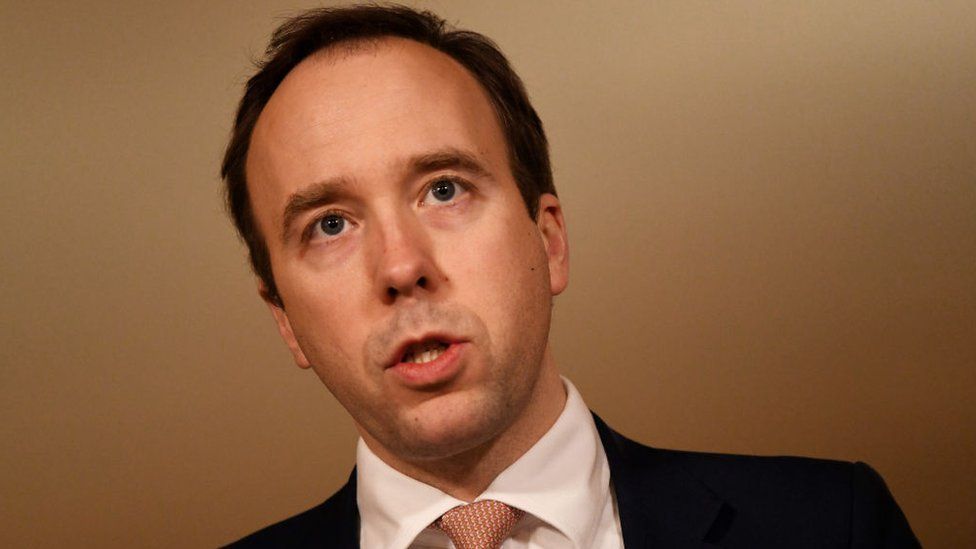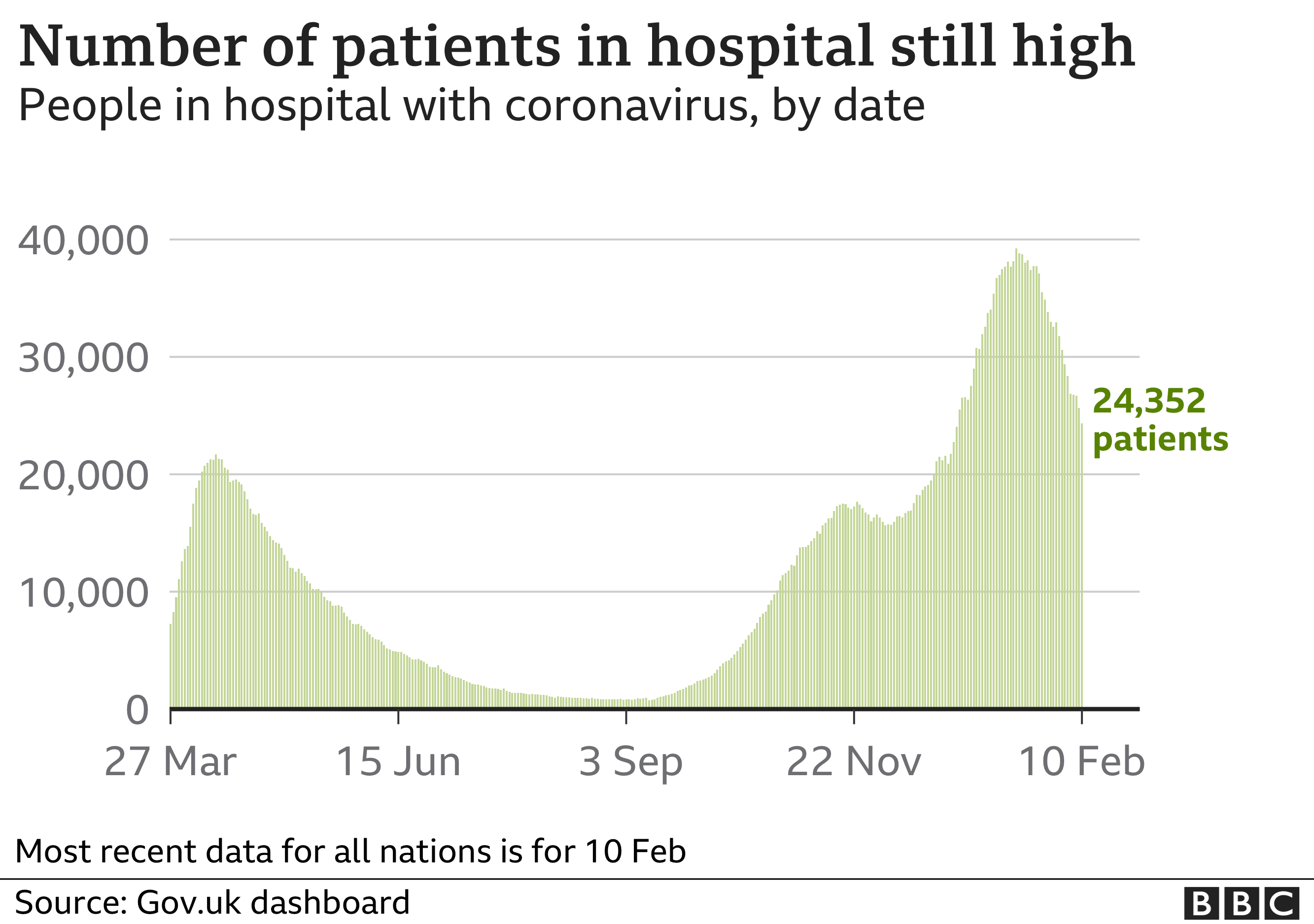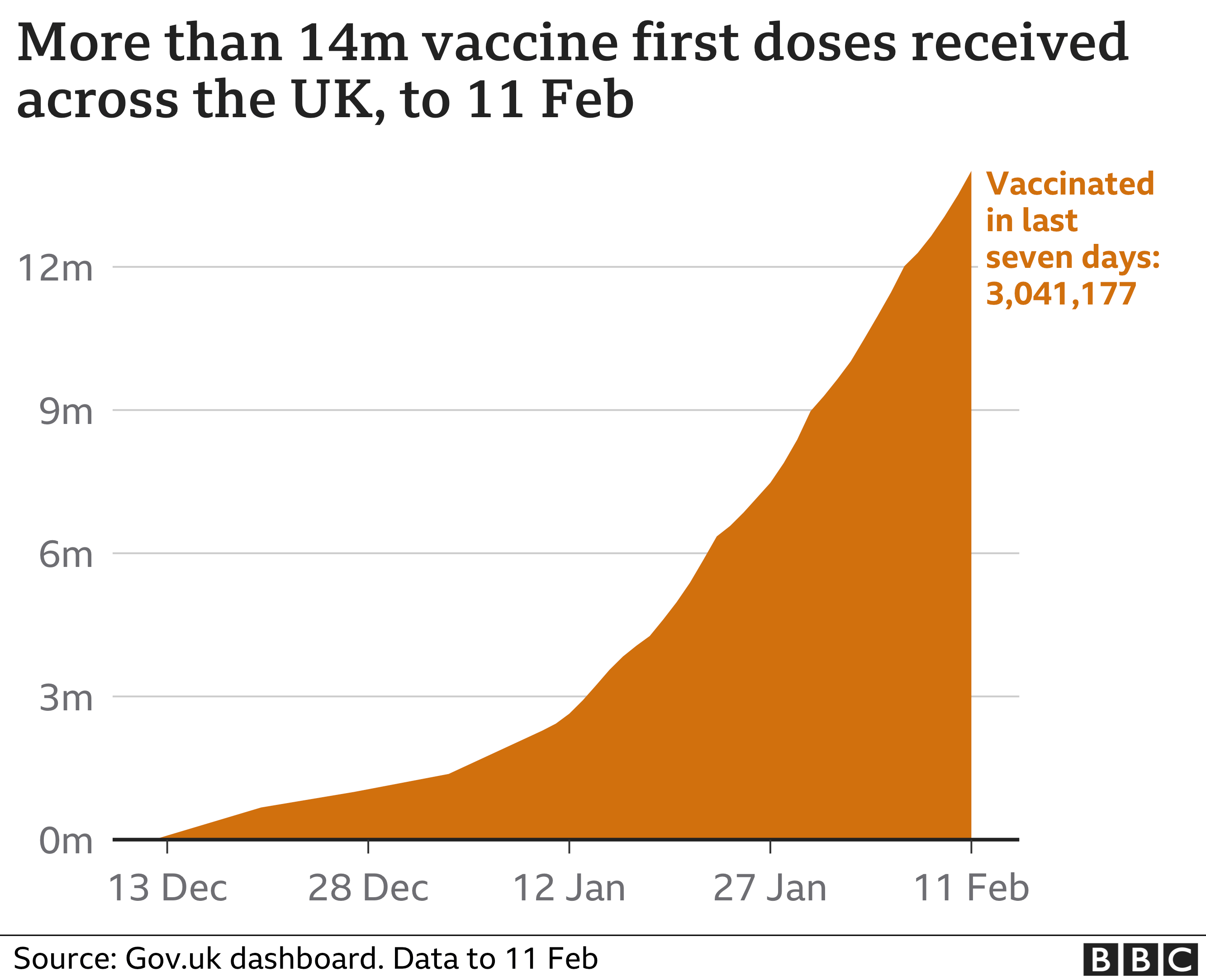
Vaccines and treatments could mean that - by the end of the year - Covid-19 is an illness we can live with "like we do flu", Health Secretary Matt Hancock has said.
He told the Daily Telegraph he hoped new drugs arriving by the end of 2021 could make Covid a "treatable disease".
The drugs - and vaccines - represent "our way out to freedom", he said.
Mr Hancock said he hoped all UK adults could be offered the vaccine "a bit before" September.
Although more than 14 million people have been given a first vaccine dose, the health secretary said new treatments were also necessary for a "small number" of people who may not be protected by the vaccine.
Antibody treatments are being trialled as an alternative to vaccines for people with impaired immune systems.
"I hope that Covid-19 will become a treatable disease by the end of the year," Mr Hancock told the paper.
He said the new treatments would play an important role in "turning Covid from a pandemic that affects all of our lives into another illness that we have to live with, like we do flu. That's where we need to get Covid to over the months to come".


In addition to the new treatments, Mr Hancock said living with Covid safely would depend on the vaccines:
- reducing the number of people admitted to hospital with Covid-19
- bringing down the number of deaths
- cutting transmission of the virus
"If Covid-19 ends up like flu, so we live our normal lives and we mitigate through vaccines and treatments, then we can get on with everything again," the health secretary said.
Mr Hancock's comments suggest he is ruling out a "zero Covid" strategy, aimed at eliminating the virus entirely from the UK.
Former cabinet minister Damian Green MP told BBC Newsnight: "Zero Covid is probably a mirage. It is going to be with us, we are going to have to live with it."
But Mr Green said by vaccinating a large part of the population, particularly those most at risk, and approving new treatments, we can "slowly, gradually, cautiously open up with the confidence that we are not going to have to lock down again".
Conservative MP David Davis told BBC Radio 4 Today: "There will come a point where there will be a death rate from Covid but it's at a normal level and then we have to cope with it.
"Obviously we try to prevent it, but we accept it, I think, we have to."
However, scientists have urged caution.
Professor Steven Riley, a member of the Spi-M modelling group, said the rollout of the vaccination programme did not mean coronavirus controls could be dropped, adding that Britain could face a wave as big as the current one if lockdown restrictions were all lifted.
"No vaccine is perfect. We are certainly going to be in the situation where we can allow more infection in the community but there is a limit," he told BBC Radio 4 Today.
"In the short term, if we were to allow a very large wave of infection, that wave will find all the people who couldn't have the vaccine for very good reason (and) those people who had the vaccine but unfortunately it didn't give them the protection they need."

- VACCINE: When will I get the jab?
- NEW VARIANTS: How worried should we be?
- COVID IMMUNITY: Can you catch it twice?
- TREATMENTS: What progress are we making to help people?

Dr Sarah Pitt, a virologist at the University of Brighton, disagreed with Mr Hancock's suggestion that we could live with coronavirus like we do the flu.
She told BBC Radio 5 Live: "It's not a type of flu. It's not the same sort of virus. It doesn't cause the same sort of disease, it's very, very nasty."
"The mutations, the variations, that we're seeing are becoming more infectious, not less infectious and a bit more dangerous, not less dangerous."
Richard Horton, editor-in-chief of the Lancet medical journal, told the BBC politicians would have to decide what level of deaths was acceptable if "zero Covid" was not possible - adding that, in some years, 30,000 people died from flu.
"That's a conversation politicians are going to have to have with the country," he said.
He said the UK was likely to see another spike in the number of Covid-19 cases next winter, and he suggested it would take two, three or four years to build up sufficient levels of immunity in the population.
"It's an illusion to think that our success is going to be sufficient to protect us, because even if we do have high levels of population immunity, our borders are not going to be secure - and we can't keep locking people up in hotels for the next five years," Dr Horton said.

- LOOKING FOR SOMETHING TO WATCH?: From terrifying horror 'The Babadook' to multi-Oscar-winning 'Shakespeare in Love' - there's a film to suit your mood on BBC iPlayer
- THE THURSDAY MURDER CLUB: Escape the week with Richard Osman's bestselling crime novel...

https://news.google.com/__i/rss/rd/articles/CBMiJmh0dHBzOi8vd3d3LmJiYy5jby51ay9uZXdzL3VrLTU2MDUwMTE50gEqaHR0cHM6Ly93d3cuYmJjLmNvLnVrL25ld3MvYW1wL3VrLTU2MDUwMTE5?oc=5
2021-02-13 09:38:00Z
52781372288508
Tidak ada komentar:
Posting Komentar